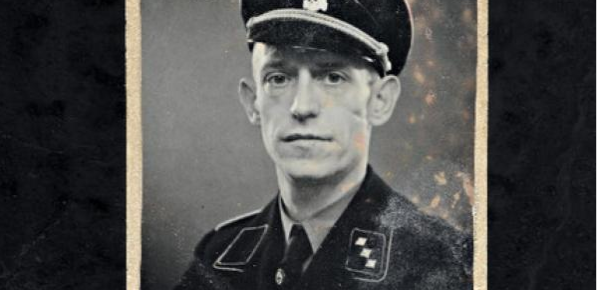
The appropriation of victim status by perpetrators is a rather widespread phenomenon. Indeed, no major war or act of mass killing in the twentieth century began without the aggressors or perpetrators first claiming innocence and victimhood. In the mindset of Holocaust perpetrators, they – and their families back home in Greater Germany – were the victims of a global Jewish conspiracy, which was responsible for unleashing the Second World War.
The subject of my new book The Making of an SS Killer: The Life of Colonel Alfred Filbert, 1905–1990 was a mid-level, front-line Holocaust perpetrator; an SS officer who led an Einsatzkommando – a mobile task force – deployed behind the advancing German Army in the Soviet Union between June and October 1941, and was responsible during these four months for the murder of more than 18,000 Soviet citizens, mostly Lithuanian, Belorussian and Russian Jews.
A victim complex clearly informed Alfred Filbert’s mindset. His elder brother, Otto, had been imprisoned for commenting with regret on the failure of the assassination attempt on Hitler’s life by the carpenter Georg Elser on 8 November 1939. A regular court of law in Dessau sentenced him to four years’ imprisonment for ‘treachery’, although he did not have any previous convictions. According to Alfred Filbert, it was this affair with his brother that put a stop to any further promotion for him within the SS. In the space of two-and-a-half years he had been promoted five times; yet over the next six-and-a-half years he would not be promoted again.
In the early spring of 1941 came another pivotal moment for Alfred Filbert. Among those initiated into German plans to invade the Soviet Union in the summer of the same year, he learned that SS task forces would be deployed alongside Wehrmacht security divisions in order to ‘cleanse’ the regions between the three advancing army groups of scattered enemy soldiers and partisans. Along with a handful of other senior SS officers, Filbert volunteered for service in the impending operation. Filbert knew precisely what a commission in the East would entail and he volunteered for it.
It was as if, in response to the imprisonment of his brother, Filbert wanted with his zeal to prove to the SS leadership his commitment to the National Socialist cause and his ideological reliability. Significantly, the British psychiatrist Dr Henry Dicks, who interviewed Filbert in 1969 during the latter’s imprisonment in a West Berlin jail, recognised that Filbert ‘felt uniquely singled out’. This victim mentality was evident throughout Filbert’s post-war trial, during his imprisonment and indeed subsequent to his release. To this end, he utilised first and foremost the fate of his elder brother Otto, who had served a prison term, been incarcerated in a concentration camp, spent time in a penal battalion and, ultimately, failed to survive the war, leaving his wife without a husband and his three sons without a father.
The appalling fate of his brother became a constant and decisive factor in Filbert’s post-war portrayal of himself as a victim. Not only his self-portrayal but also his self-perception appears to have been decisively and lastingly shaped by the incarceration and death of his brother. He did not regard himself as a perpetrator but as a victim, who through no fault of his own had found himself during the war in a hopeless situation with no way out and was forced to commit terrible deeds.
The ingredient that made it possible for Filbert to portray himself as a victim, both to himself and to others, even after the war was first and foremost the persecution and death of his own brother at the hands of the very regime that Filbert himself so loyally and fanatically served. If egotism and ideological conviction are the main ingredients in explaining why Filbert became an enthusiastic genocidal perpetrator, it was the fate of his brother Otto that served as the pretext of a mass murderer, long after the war and the Holocaust had ended.
Alfred Filbert’s life provides helpful insights into the role of ideology, the importance of egotism and a craving for recognition, and the self-perception and self-projection of the perpetrator as victim. What the example of Alfred Filbert also demonstrates, however, is the importance of individual choice. Filbert made the conscious decision to pursue a career in the Nazi intelligence service when other options were open to him. Despite the fate of his brother – or rather because of it – he volunteered to serve in the SS task forces deployed in the campaign against the Soviet Union, although he knew what this would entail. Once in the field, he then chose to be particularly radical in his approach to the murder of the Jewish population.
In the vast majority of cases, every one of us can make a choice whether to kill or not to kill. Whilst there is no indication that Filbert actively set out at the beginning of his career to become a state executioner as the commander of a mobile killing squad or to exercise some similar function, by repeatedly placing himself at what we might call ‘the sharp end of the stick’, it became ever more likely that he would receive such an assignment.
The Making of an SS Killer: The Life of Colonel Alfred Filbert, 1905–1990
Latest Comments
Have your say!